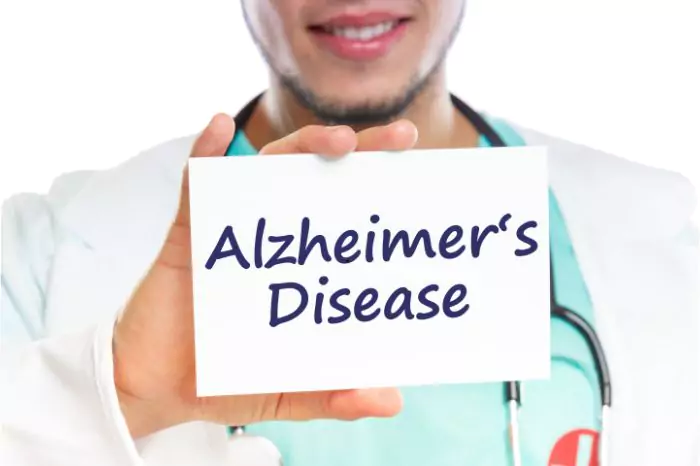Alzheimer’s disease, a neurological disorder that causes memory loss and cognitive decline, profoundly affects millions worldwide. According to research 1 in 3 people are affected by neurological conditions. This progressive condition gradually erodes memory and thinking skills, eventually impairing the ability to perform even the simplest tasks. Understanding Alzheimer’s is crucial for the medical community, families, and individuals confronting its daily impact.
In this article, we explore key aspects of the disease, including its effects on the brain, symptom recognition, risk factors, and the current state of treatment and research. Keep reading for insights into the facts about Alzheimer’s disease.
Key Insights into Alzheimer’s: Symptoms, Risks, and Management

1. Recognizing the Early Signs and Symptoms of Alzheimer’s
Early recognition of Alzheimer’s symptoms can lead to more effective disease management. Memory problems that disrupt daily life, including forgetting recently learned information or important dates or events, are among the most common early signs. Other symptoms may involve challenges in planning or solving problems, difficulty completing familiar tasks, and confusion with time or place.
Changes in mood and behavior also present themselves as early indicators. This may mean bouts of confusion, suspicion, depression, fear, or anxiety. Individuals might also display decreased or poor judgment, withdrawal from work or social activities, or changes to their personality or mood.
These signs should not be ignored as mere ‘senior moments.’ They require a thorough assessment by healthcare professionals, who can differentiate between signs of Alzheimer’s and typical age-related changes. Early diagnosis also provides a gateway to the benefits of current treatment options and gives time to plan for the future.
However, it is important to note that experiencing one or two of these symptoms alone does not necessarily indicate a diagnosis of Alzheimer’s. Medical evaluation will consider the intensity and frequency of symptoms and their impact on one’s quality of life and ability to function.
2. Risk Factors and Prevention Strategies for Alzheimer’s Disease
While there is no fail-safe prevention strategy for Alzheimer’s disease, understanding the risk factors can enable individuals and healthcare providers to make more informed decisions about their health. Age is the most significant risk factor, with the majority of Alzheimer’s patients being 65 and older. Genetic predisposition also plays a role; individuals with a family history of Alzheimer’s must be particularly vigilant.
Nevertheless, lifestyle factors are also implicated in disease risk. Cardiovascular health, for instance, is tied closely with brain health. Hypertension, obesity, and diabetes, which affect vascular conditions, can increase one’s risk for Alzheimer’s. Consequently, maintaining a healthy diet, regular physical activity, and heart health management can lower the risk.
There’s also growing evidence that cognitive engagement and a socially active lifestyle can have a protective effect. Activities that stimulate the brain and foster social connections are encouraged to reduce Alzheimer’s risk. Mental exercises and continued learning can help build cognitive reserves that might help delay the onset of symptoms.
Despite the myriad of factors related to the development of Alzheimer’s, early intervention through lifestyle changes and proper management of coexisting health issues might contribute to the prevention or delay of this challenging disease.
3. Treatment and Management Options for Alzheimer’s Patients
Currently, there is no cure for Alzheimer’s disease, but several treatment options can help manage symptoms, improving the quality of life for those living with this condition. Medications such as cholinesterase inhibitors and memantine can help with memory loss and delay the worsening of symptoms for a period. However, they cannot stop the disease from progressing.
Apart from pharmacological interventions, therapeutic activities and strategies are vital. Cognitive stimulation therapy, music and art therapy, and physical exercise programs can support the well-being of Alzheimer’s patients. Modifying the living environment to reduce confusion and help promote safety and comfort is also an integral part of management.
Caregivers’ roles are deeply significant in treating and managing Alzheimer’s. They may receive training to better understand and cope with challenging behaviors that can arise. Support groups and resources can also provide essential emotional and practical backing.
An important aspect of managing Alzheimer’s is addressing the legal, financial, and long-term care planning in the early stages. This often involves difficult discussions and decisions, but proactive planning can relieve some of the pressures that develop as the disease advances.
Final Words
Overall, Alzheimer’s disease is a complex condition that significantly impacts individuals, families, and caregivers, requiring comprehensive management and support. While there is no cure, early recognition, risk factor awareness, and symptom management can improve quality of life and provide a sense of control for those affected.





